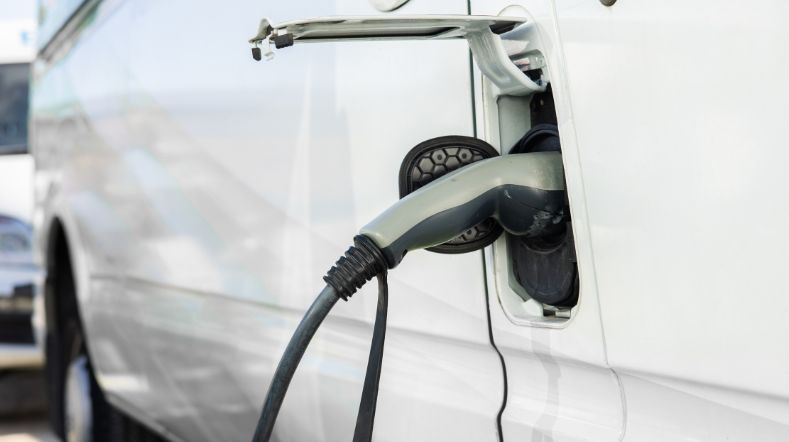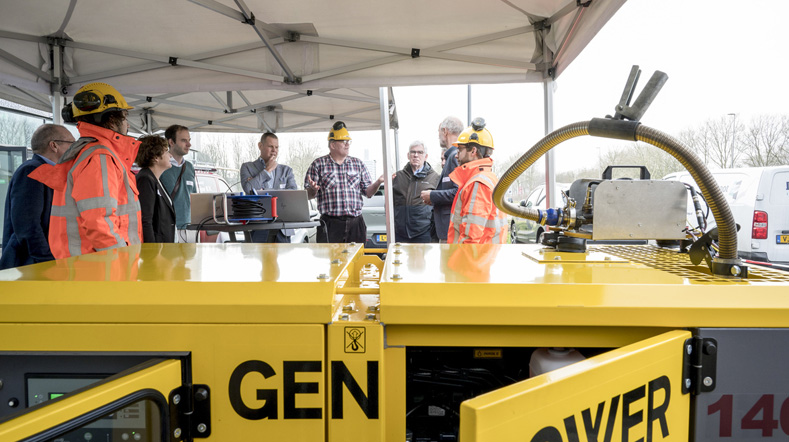
Cleaner cities thanks to innovations in urban logistics
As a result of population growth, rising prosperity, and increasing economic activity, the demand for mobility and logistics in our cities is rising sharply. But how can we make sure meeting this demand doesn’t negatively impact cities’ accessibility, liveability, and safety? At TNO, we’re working on innovations and smart networks to make urban logistics cleaner and more efficient.
Zero emissions by 2025
The European Commission has set the target for city centres to be free of particulate matter and CO2 emissions by 2030. But before that, in 2025, the Netherlands aims to achieve emission-free city logistics through the Green Deal Zero Emission City Logistics. This means that in future, city centres will only be allowed to be supplied emission-free. From 1 January 2025, all new vans and trucks that are registered must be emission-free at the exhaust. For existing vehicles, there will be transitional arrangements depending on their Euro Class and vehicle type.
Electric freight traffic will be essential in achieving this objective. To discover whether the technology works optimally and is economically viable and operationally feasible for entrepreneurs, TNO is collaborating with the market on various field tests, including CILOLAB. In this living lab, we’re working with transport companies, hub operators, cities, and other research institutes on the transition to sustainable urban logistics. TNO is also involved in projects such as FLEX EV, VERZET, FUNDA(ce)MENT and European research project FREVUE (Freight Electric Vehicles in Urban Europe) to investigate, together with partners, how to reduce urban transport emissions by using electric vehicles.
Better insight into city logistics
Besides achieving climate goals, accessibility, liveability, and a healthy economy are also among cities’ top priorities. A fact that sometimes leads to the interests of policymakers and carriers conflicting. How can we make sure shops remain well provisioned while keeping neighbourhoods optimally accessible for residents? At TNO, we’re helping stakeholders by providing clear insight into the issues at play and offering advice on how to turn seeming contradictions into shared goals. One way in which we’re doing this is by using existing sources to identify which logistics activities take place in cities and what their footprint is. We’re doing so using the Decamod toolbox, a module based on several city case studies, including Rotterdam and Utrecht. The results are then used to develop effective policies that take into account the different interests of all stakeholders.
Global network VREF
TNO is a research partner in the Center of Excellence for Sustainable Urban Freight Systems (CoE-SUFS). An initiative of the Volvo Research and Education Foundations (VREF), a global network of universities and knowledge institutes, this research programme focuses on the challenges and opportunities in current and future urban logistics.
Experimenting in the living lab
In the City Logistics Living Lab, TNO is collaborating with the Municipality of Rotterdam on alternative forms of city logistics. Experimentation lies at the heart of this living lab. Entrepreneurs can, for instance, use an electric van or another type of electric vehicle for free during a trial period.
Outlook on zero-emission logistics per segment
Electric vehicles are quiet, clean, and economical, making them ideally suited to making urban logistics emission-free. But for now, polluting vans and trucks dominate the cityscape. To gain more insight into how different logistics segments can become more sustainable, TNO has created an outlook. The Outlook City Logistics 2017 showed that, for six urban logistic market segments, it’s possible to reduce CO2 emissions by a factor of six. The Outlook City Logistics 2020 subsequently showed how city logistics as a whole can contribute to achieving climate goals, outlining the most promising development steps per segment.
Get inspired
Optimal charging planning for logistics service providers considering grid congestion


Cleaner construction thanks to smart construction logistics and accurate emission measurements







